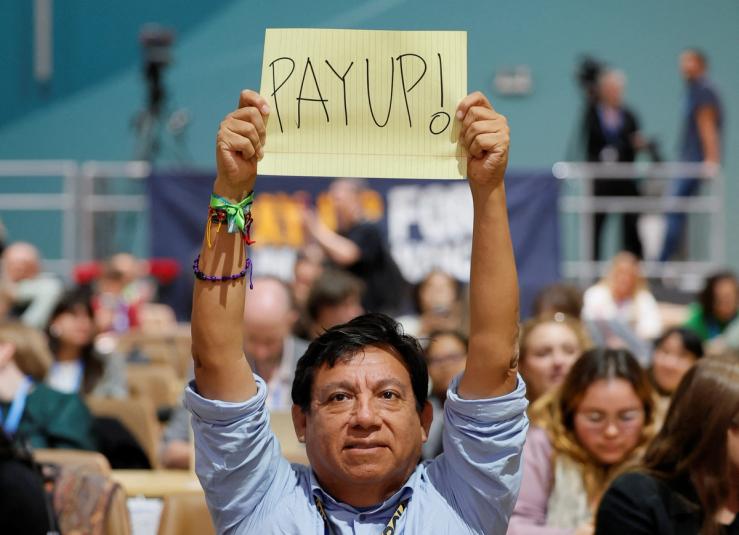The News
With just two days to go at COP29, a group of developing nations and China are pushing for rich countries to pledge at least $500 billion in annual climate financing by 2030 to fund their green transition.
After nearly two weeks of negotiations, delegates are at a stalemate over how much and who should pay what, the Financial Times wrote.
The onus is on developed, richer economies, which have historically contributed the most to climate change, while developing and small economies, especially island nations, are the most likely to feel the brunt of the effects of global warming.
“This is a finance COP and we have to go back home with a figure [that] small islands [vulnerable to climate change] find agreeable,” a delegate from the Maldives said.
SIGNALS
COP29 deadline looms with no deal in sight
Hopes of a breakthrough seemed “dashed” Thursday morning after draft texts of a possible deal had an “X” in place of the monetary figure delegates and activists had hoped for, The Guardian reported. The stalemate “leaves negotiators with a huge amount of progress to make over the next day or two,” a development expert at climate think tank E3G told the Financial Times. There has been some movement: Developing nations originally asked for $1 trillion, however, people familiar with negotiations said the final figure will most likely be between $200 and $300 billion. “This is the moment where [countries] need to put all [their] cards on the table,” said a lead negotiator.
Saudi Arabia acts as a ‘wrecking ball’ in COP29 talks
Beyond funding, also on the negotiating table is whether or not COP29 countries would reaffirm a commitment made at COP28 to transition away from fossil fuels. Saudi Arabia — the world’s top oil exporter — signed the pledge last year, yet diplomats and climate experts told The New York Times that they have been working “ever since” to make sure the statement is not repeated. UN rules require any COP29 deal to be endorsed by all the participating nations, which means the kingdom could sink a deal acting unilaterally. “They’re just being a wrecking ball,” a researcher at UK climate think tank E3G told the Times.



